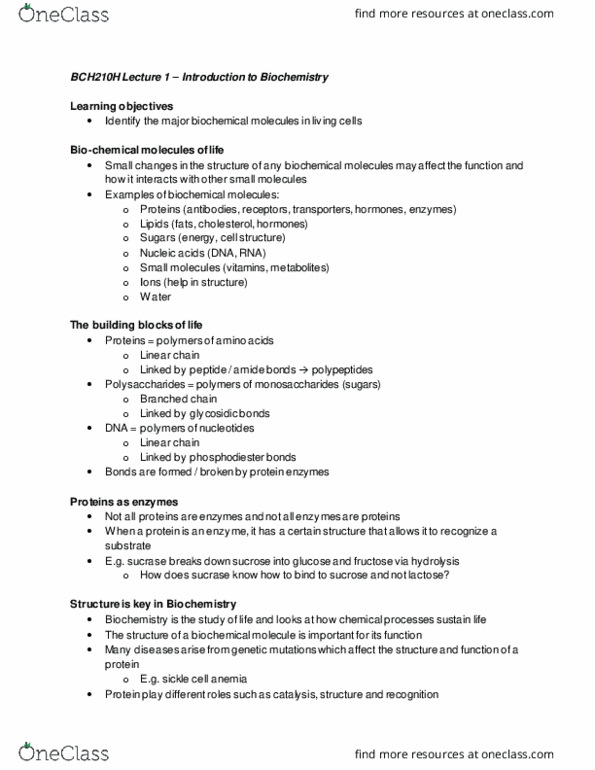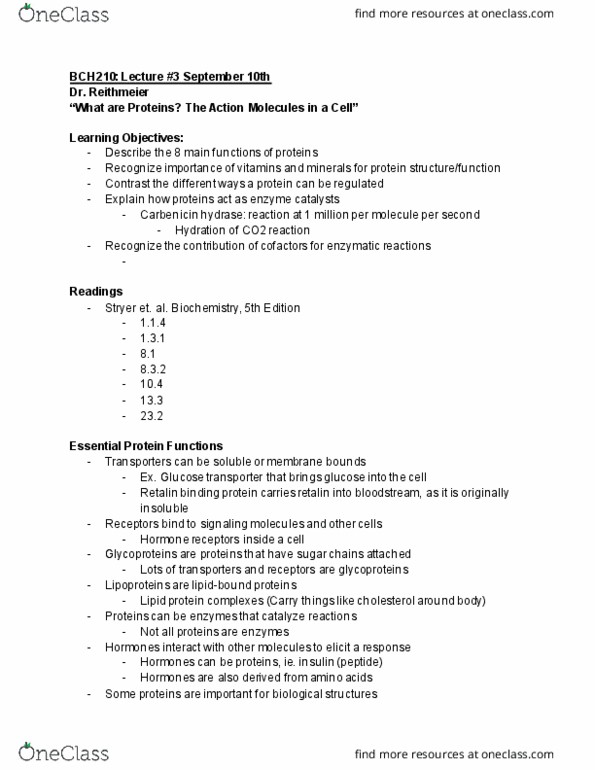BCH210H1 Lecture Notes - Lecture 3: Membrane Protein, Glycoprotein, Enzyme Catalysis
BCH210H1 verified notes
3/39View all
Document Summary
Describe the 8 main functions of proteins. Recognize importance of vitamins and minerals for protein structure/function. Contrast the different ways a protein can be regulated. Explain how proteins act as enzyme catalysts. Carbenicin hydrase: reaction at 1 million per molecule per second. Recognize the contribution of cofactors for enzymatic reactions. Transporters can be soluble or membrane bounds. Glucose transporter that brings glucose into the cell. Retalin binding protein carries retalin into bloodstream, as it is originally insoluble. Receptors bind to signaling molecules and other cells. Glycoproteins are proteins that have sugar chains attached. Lots of transporters and receptors are glycoproteins. Lipid protein complexes (carry things like cholesterol around body) Proteins can be enzymes that catalyze reactions. Hormones interact with other molecules to elicit a response. Hormones can be proteins, ie. insulin (peptide) Hormones are also derived from amino acids. Some proteins are important for biological structures. Such as collagen for the skin, keratin, Proteins can help with motility and contraction.




